|
|
THURSDAY / 05 OCTOBER 2017

|
SPECIAL PUBLICATION
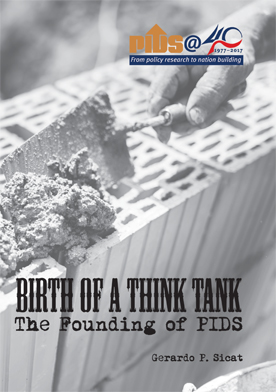
PIDS Pub 2017-01: Birth of a Think Tank (The Founding of PIDS)
by Gerardo P. Sicat
The Philippine Institute for Development Studies (PIDS), founded in 1977, has gained international recognition for useful research on development issues relevant to the nation's socioeconomic needs.
As the Institute celebrates its 40th year of establishment, it is pertinent to look back at its beginning and examine the main objectives why it was set up. For four decades, amid changes in leadership, PIDS has stayed the course in producing policy research studies that have been useful inputs to policymaking in the country.
In this memoir prepared for the 40th anniversary celebration of the Institute's birth, Dr. Gerardo P. Sicat—the founding father of PIDS—recounts the unique circumstances, philosophy, and other factors that led to the establishment of the research institute. Click here to download the electronic copy of the publication.
POLICY NOTE
PN 2017-17:
Measure and Determinants of Chronic and Transient Poverty in the Philippines
by Connie B. Dacuycuy and Lora Kryz C. Baje
The Philippines has a long history of battle against poverty. Unfortunately, despite the government's various poverty reduction and social protection programs, the country still failed to reduce poverty level by half in 2015. This Policy Note investigates the determinants that drive households into chronic and transient poverty in the Philippines. Using a generalized linear model, this study finds that education, asset ownership, employment, family size, dependency burden, and armed conflict are the determinants of such kinds of poverty in the country. Among others, it recommends the institutionalization of the Pantawid Pamilyang Pilipino Program given its capability to assist poor households in sending their children to school. It also encourages the government to continue its efforts to intensify and accelerate the implementation of programs promoting family planning, particularly the Responsible Parenthood and Reproductive Health Act. Click here for the full article.
DISCUSSION PAPERS
- DP 2017-29:
Federalism: Prospects for the Philippines
by Romulo E.M. Miral Jr.
The paper aims to consider potential benefits of federalism to the Philippines within the context of two major development constraints—weak economic growth and poverty. The governance and institutional aspects of these development constraints point to how continued centralization of fiscal powers and the resulting common resource pool problem have weakened government capacity to bring about inclusive development. Critical to the success of decentralization and fiscal federalism efforts is a strong middle level government, which is absent in the current setup. The establishment of regional governments, its powers and functions and its relation to the national government and local governments, is crucial in the shift from a unitary to a federal form of government. Click here for the full paper.
- DP 2017-28:
Measuring and Examining Innovation in Philippine Business and Industry
by Jose Ramon G. Albert, Francis Mark A. Quimba, Ramonette B. Serafica, Gilberto M. Llanto, Jana Flor V. Vizmanos, and Jose Carlos Alexis C. Bairan
Innovation involves implementing new or significantly improved goods and services, production processes, marketing, or organizational methods to add value. Its measurement provides a mechanism for benchmarking national performance and examining innovation and its relation to economic growth. Further, examining determinants and bottlenecks to innovation among firms aids in mainstreaming innovation policies.
This paper describes and discusses the results of the 2015 Survey of Innovation Activities, conducted by the Philippine Institute for Development Studies. Survey results suggest that less than half of the firms in the country are innovators, with larger-sized firms innovating more than micro, small, and medium establishments. Click here for the full paper.
|
October 10, 2017, 2–4PM
Impact Evaluation of the Special Program for Employment of Students: Challenges, Findings, and Lessons Learned
Venue: PIDS Conference Room, 18th Floor, Three Cyberpod Centris - North Tower, EDSA corner Quezon Avenue, Quezon City
October 18–19, 2017, 9–5PM
PIDS-ANU Forum on Regulation and Governance in the Philippines: Development Policy Challenges for the New Administration
Venue: Marco Polo Ortigas,
Pasig City
October 25, 2017, 9–2PM
PIDS-CUTS International Workshop on the Digital Economy: Potential Benefits, Challenges, and Implications for Regulation
Venue: PIDS Conference Room, 18th Floor, Three Cyberpod Centris - North Tower, EDSA corner Quezon Avenue, Quezon City
.jpg)
The Philippine Journal of Development is a professional journal published by the Philippine Institute for Development Studies. It accepts papers that examine key issues in development and have strong relevance to policy development. As a multidisciplinary social science journal, it accepts papers in the fields of economics, political science, public administration, sociology, and other related disciplines. It considers papers that have strong policy implications on national or international concerns, particularly development issues in the Asia-Pacific region.
CLICK HERE for the guidelines in the preparation of articles. Submissions and inquiries may be sent to PJD@mail.pids.gov.ph |

|

ASEAN urged to further trade liberalization amid rising protectionism
The Association of Southeast Asian Nations (ASEAN) should continue pushing for trade reforms and liberalization amid the rising protectionism across the globe.
Experts from the ASEAN and East Asia region made this call at a recent public symposium on ASEAN Economic Community and Nation Building organized by state think tank Philippine Institute for Development Studies and Jakarta-based Economic Research Institute for ASEAN and East Asia. READ MORE |
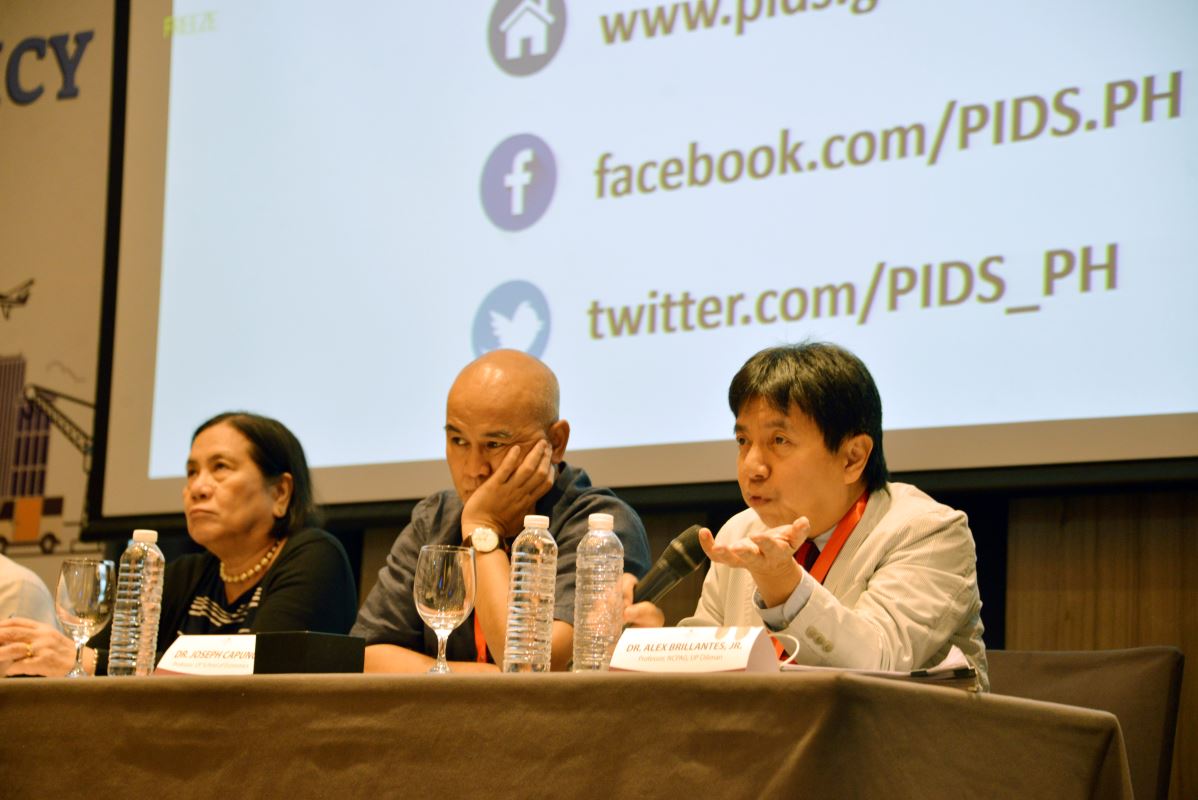 Analysts warn shift to federalism could worsen regional inequality Analysts warn shift to federalism could worsen regional inequality
A shift to federalism at this time could worsen regional inequality given the existing highly imbalanced and inequitable political and economic development among regions, provinces, and cities across the country.
In a forum organized by state think tank Philippine Institute for Development Studies titled, “Critical Perspectives on Federalism for Regional Development”, economists and political analysts maintained that for federalism to succeed, persistent challenges in local governance and political economy issues must first be addressed. READ MORE |
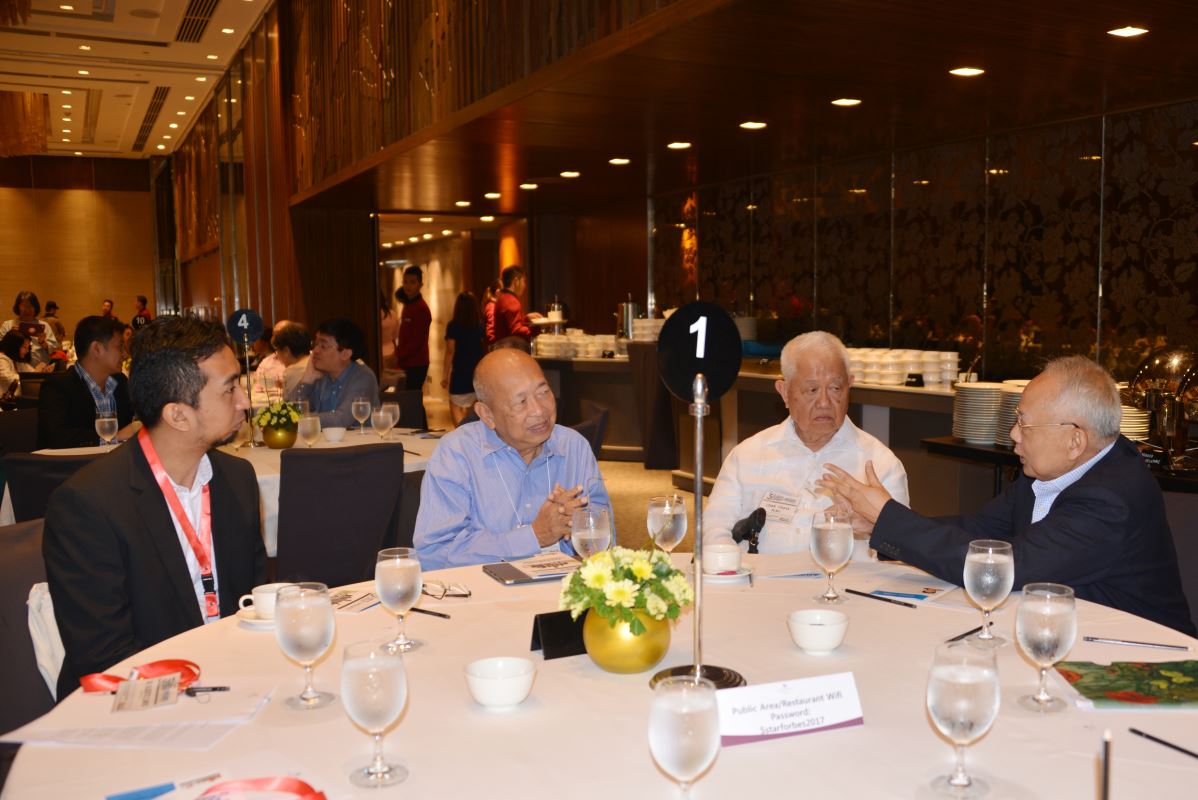 PIDS calls for ‘intelligent’ discourse on federalism PIDS calls for ‘intelligent’ discourse on federalism
Policymakers should see merit in examining whether federalism can indeed address the sociopolitical and economic problems that hamper the country’s growth.
This was the message of Dr. Gilberto Llanto, president of state think tank Philippine Institute for Development Studies, as he opened the Third Annual Public Policy Conference (APPC). With the theme, “Critical Perspectives on Federalism for Regional Development”, this year’s APPC focused on the major issues surrounding the proposal for the country’s shift to a federal form of government. READ MORE |
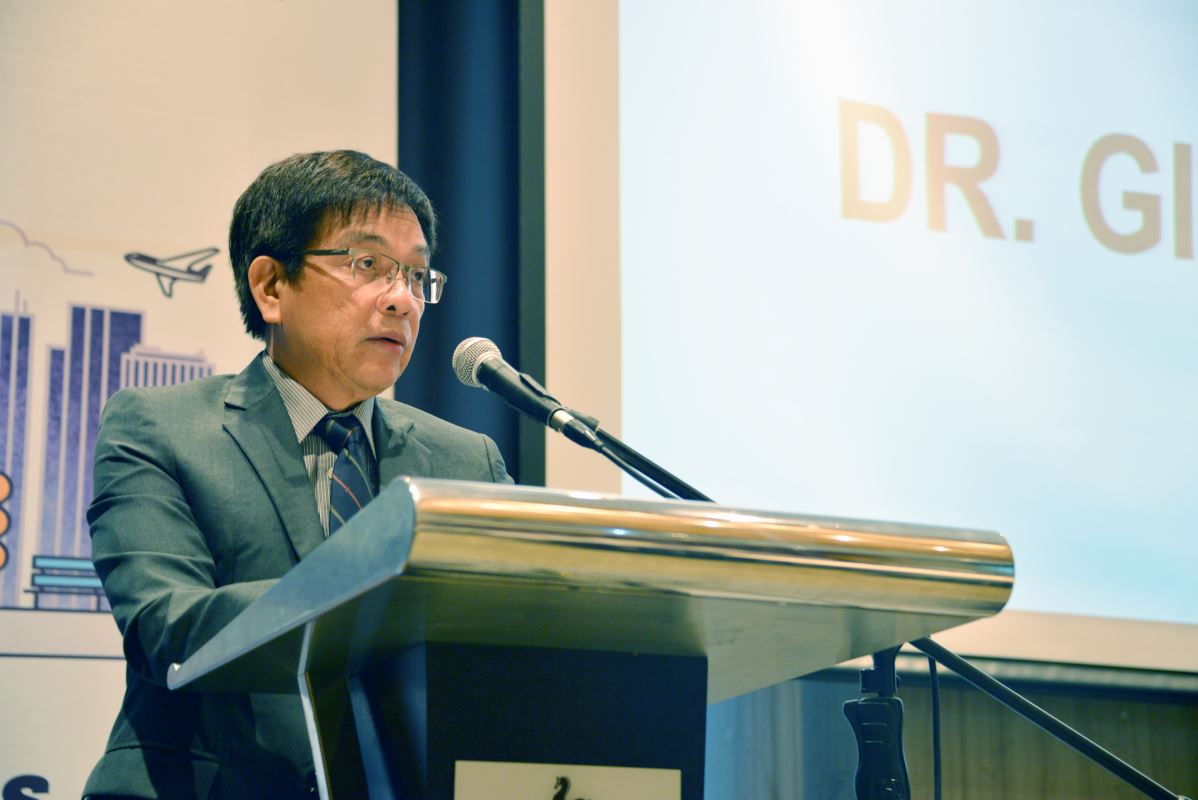 PIDS urges policymakers to carefully study federalism proposal PIDS urges policymakers to carefully study federalism proposal
State think tank Philippine Institute for Development Studies, in its Third Annual Public Policy Conference (APPC), urged policymakers to pursue a comprehensive study of the proposed shift to a federal form of government.
This year’s APPC, which has the theme, “Critical Perspectives on Federalism for Regional Development”, aims to gather different analyses and insights on federalism from the country’s most prominent scholars and experts of political science, public administration, governance, and public finance. READ MORE |
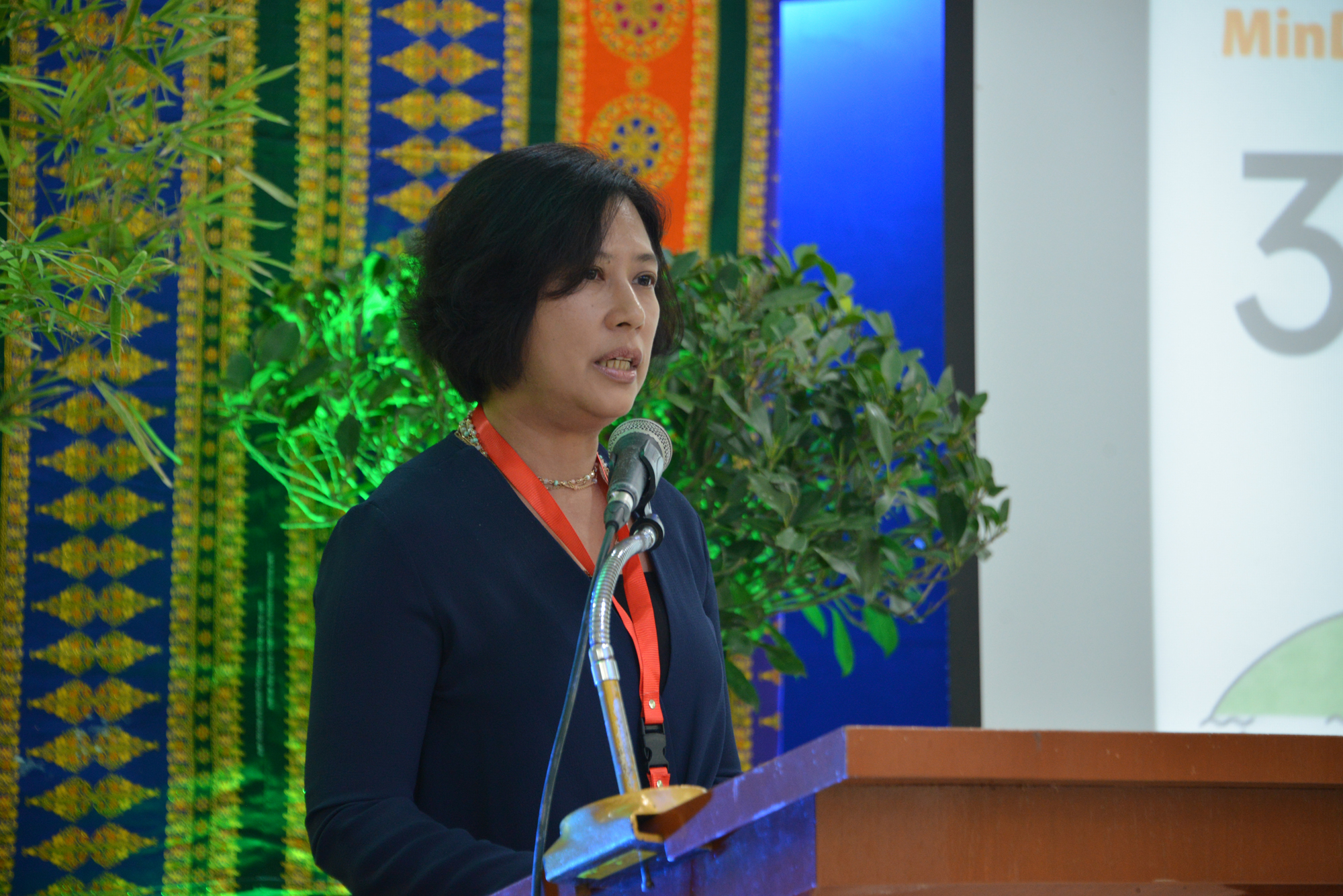 Political process on federalism must be impartial — PIDS Political process on federalism must be impartial — PIDS
As debates on federalism intensify, state think tank Philippine Institute for Development Studies (PIDS) cautions advocates and critics alike to have a careful deliberation before deciding on this major agenda.
“While federalism will eventually be a political process, it should first be anchored on a nonpartisan, objective, and scientific study to achieve its goals and desired outcomes,” said PIDS Vice President Marife Ballesteros, who represented President Gilberto Llanto during the recently concluded 3rd Mindanao Policy Research Forum held in Zamboanga City. READ MORE |
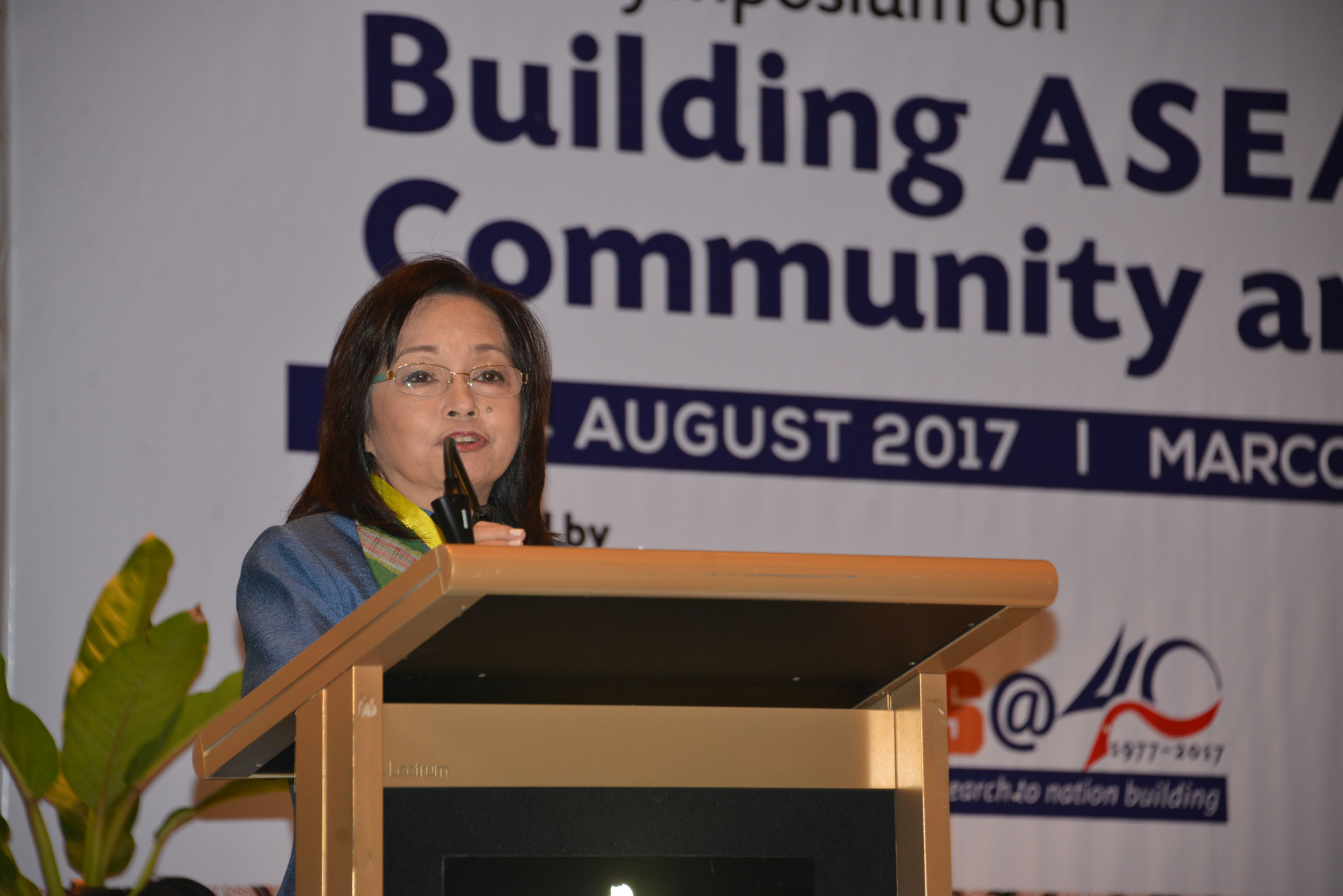 Stronger socio-cultural ties, key to ASEAN community building Stronger socio-cultural ties, key to ASEAN community building
The 10 member-states of the Association of Southeast Asian Nations (ASEAN) need to have stronger socio-cultural ties to accelerate economic growth, social progress, and cultural development in the region.
At the public symposium on Building ASEAN Socio-Cultural Community and Nation Building held recently in Davao City, representatives from government, private sector, civil society, and academe concur that the ASEAN must prioritize the difficult and long-term socio-cultural issues confronting the region, such as the perennial problems of poverty and inequality, disaster management, environment protection, and rising extremism. READ MORE |
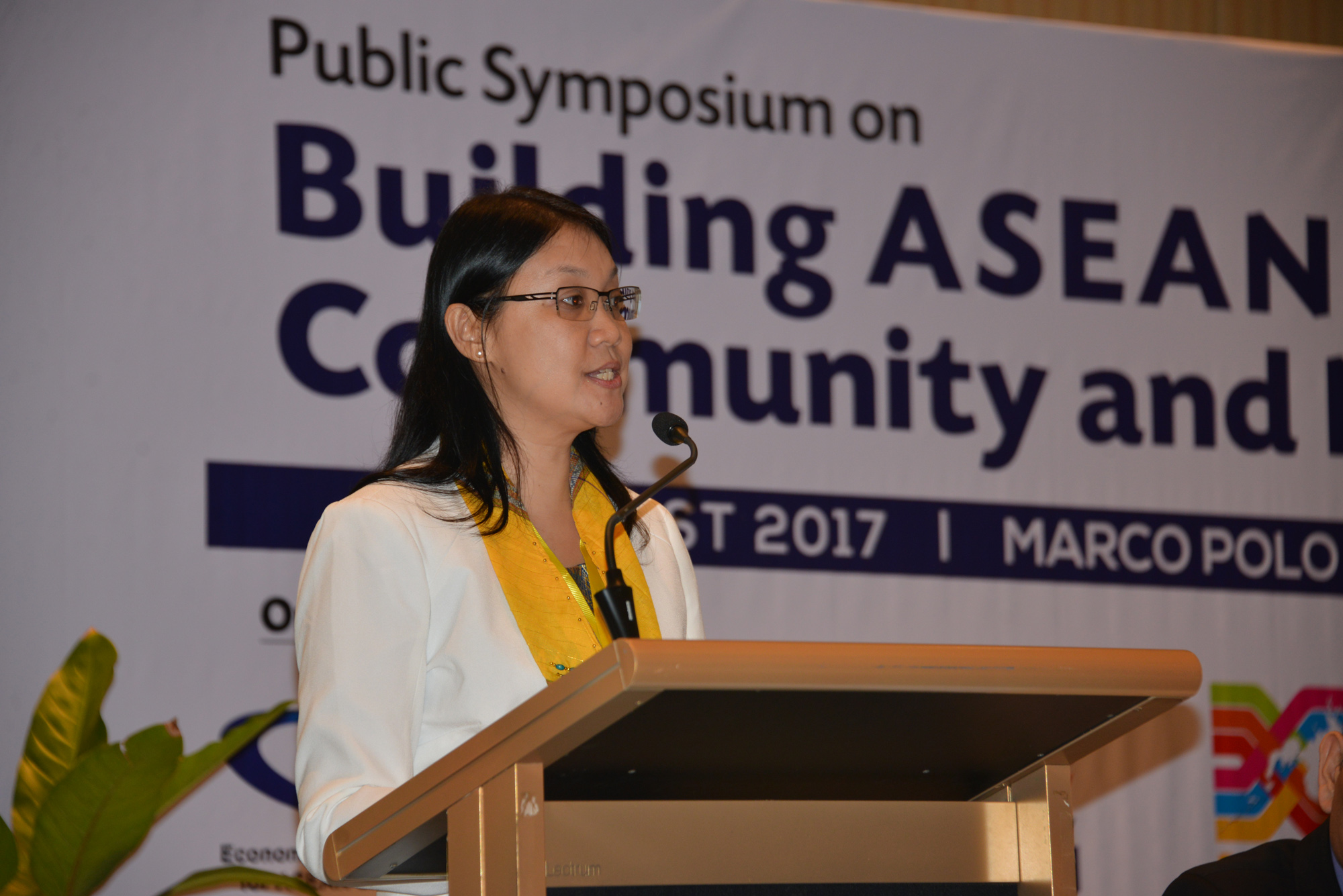 Business sector sees ASEAN membership as moderately beneficial to PH Business sector sees ASEAN membership as moderately beneficial to PH
The business sector in the country has the lowest appreciation of the benefits that come with its membership in the Association of Southeast Asian Nations (ASEAN). This was according to Dr. Sheila Siar, research information director at the Philippine Institute for Development Studies.
Siar shared this in her presentation of the Philippine results of the study “What Does the ASEAN Mean to ASEAN Peoples?” during the public symposium on Building ASEAN Socio-cultural Community and Nation Building held recently in Davao City. READ MORE |
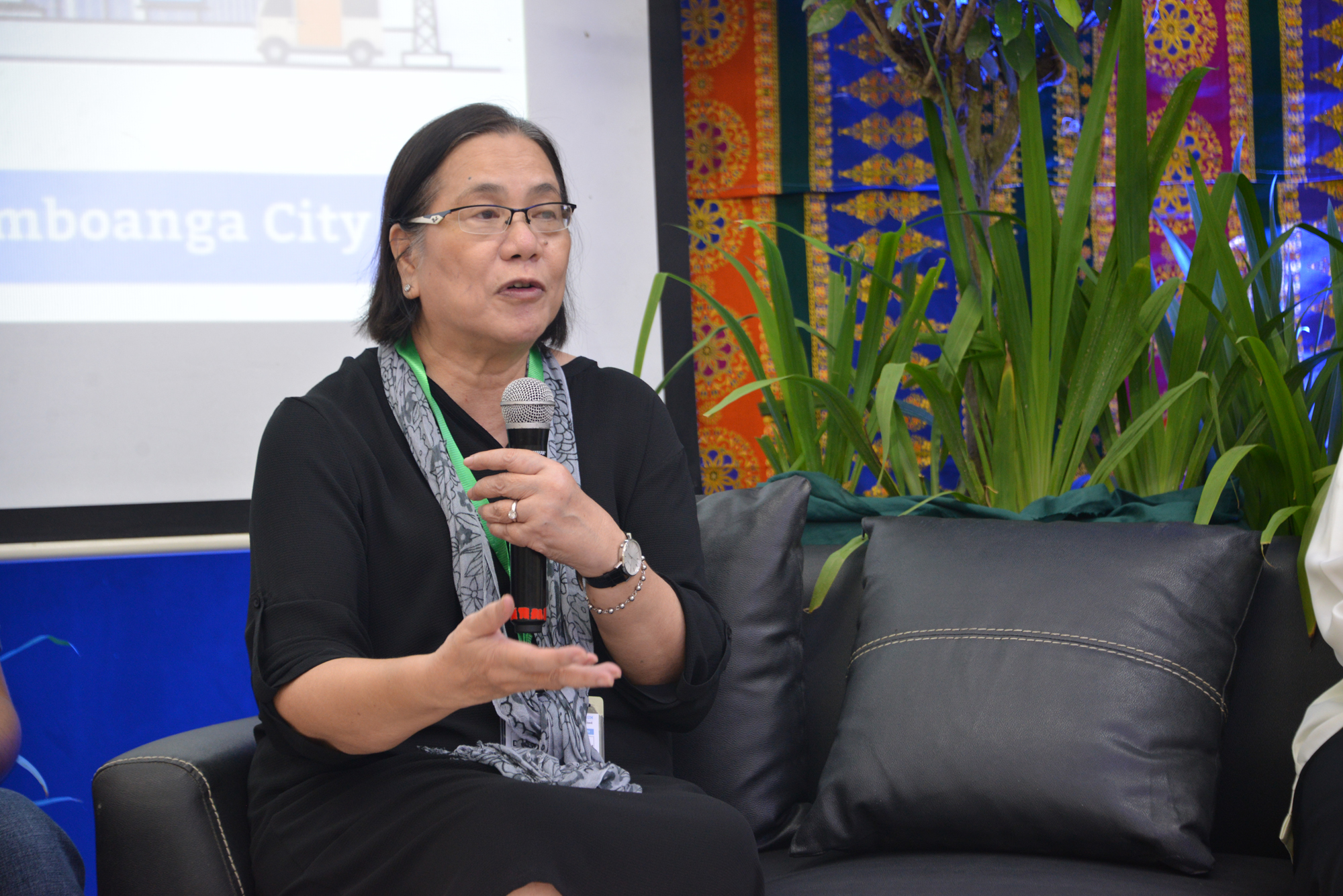 PIDS’ expert tackles fiscal federalism in Zamboanga research forum PIDS’ expert tackles fiscal federalism in Zamboanga research forum
As debates on federalism in the country heat up, state think tank Philippine Institute for Development Studies (PIDS) makes it one of the main topics of its Development Policy Research Month (DPRM) celebration this year.
Pursuant to Proclamation No. 247 issued in 2002, PIDS has been designated as lead agency in the annual celebration of the DPRM every September to promote the significance of evidence-based research in program planning and policymaking. READ MORE |
 Gov’t execs tackle decentralization, federalism issues in media roadshow Gov’t execs tackle decentralization, federalism issues in media roadshow
Federalism is a ‘hot button’ topic in the country today, with no less than President Rody Duterte pushing for its adoption.
With the ongoing debates and different views of people about the issue, state think tank Philippine Institute for Development Studies took the initiative to highlight this as one of the main topics in the observance of the 15th Development Policy Research Month this September.
READ MORE |
 Experts tackle federalism, decentralization during policy research month Experts tackle federalism, decentralization during policy research month
The Duterte administration has been very vocal about pushing for federalism as a way to decentralize power in Metro Manila and to address poverty in the regions, but is it the right approach?
This is one of the main topics in this year’s 15th Development Policy Research Month, an annual nationwide celebration held every September to promote awareness of the importance of policy research in the formulation of development policies, programs, and projects.
In view of the ongoing discourse on federalism, the theme for this year is “Strengthening Decentralization for Regional Development” or “Pagpapatibay ng Desentralisasyon Tungo sa Kaunlarang Panrehiyon”. READ MORE
|
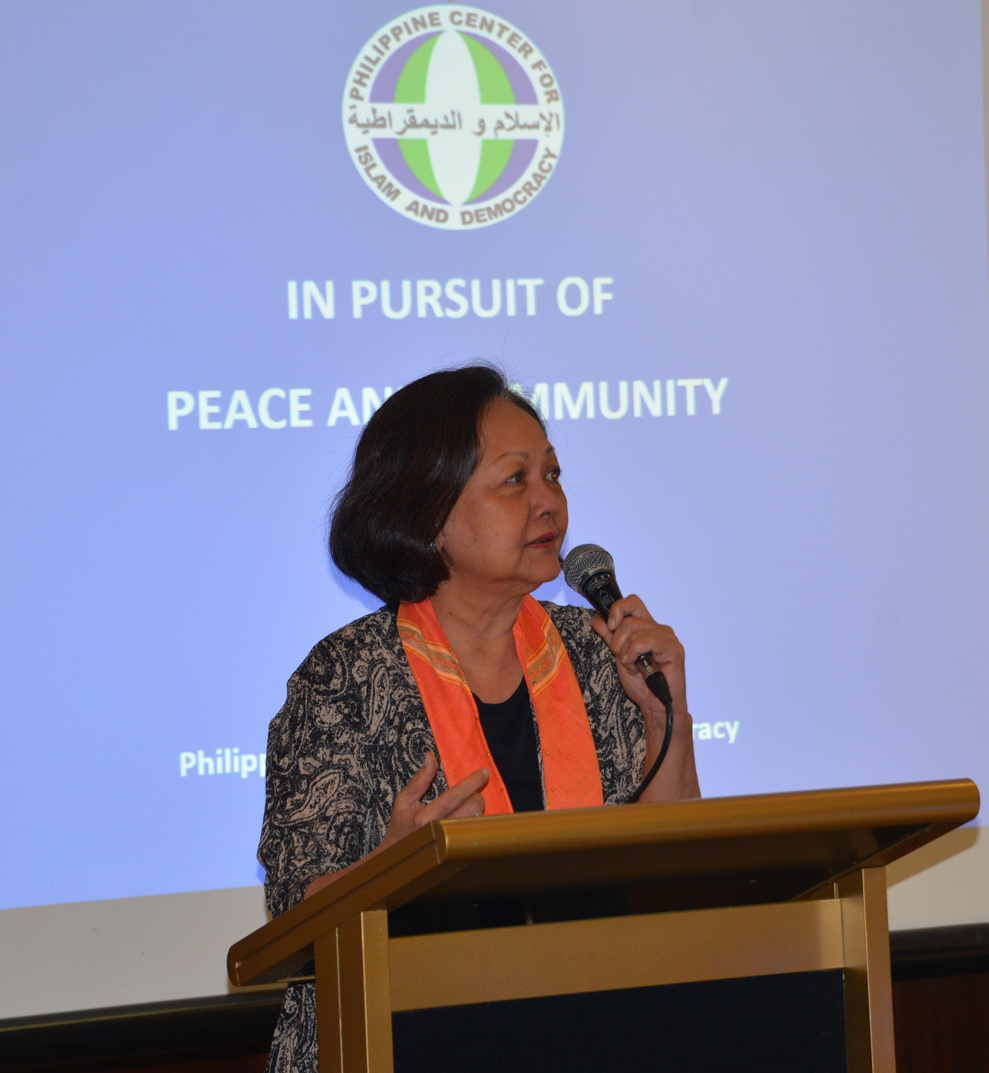
ASEAN member-states should unite against extremism and terrorism—expert
Having a harmonious relationship among the so-called “BIMP-EAGA” or the Brunei Darussalam-Indonesia-Malaysia-Philippines East ASEAN Growth Area partners is important to promote peace and cooperation, and achieve long-term development in the ASEAN region, according to Philippine Center for Islam and Democracy President Amina Rasul-Bernardo.
Bernardo said this in a public symposium on Building ASEAN Socio-Cultural Community and Nation Building organized recently by the Economic Research Institute for ASEAN and East Asia, Philippine Institute for Development Studies, Mindanao Development Authority, and the ASEAN Society in Davao City.
READ MORE |

Need help? Have feedback? Feel free to contact us.
If you do not want to receive PIDS Updates, click here.
© 2017 Philippine Institute for Development Studies.

 
|
|


.jpg)

 Analysts warn shift to federalism could worsen regional inequality
Analysts warn shift to federalism could worsen regional inequality PIDS calls for ‘intelligent’ discourse on federalism
PIDS calls for ‘intelligent’ discourse on federalism PIDS urges policymakers to carefully study federalism proposal
PIDS urges policymakers to carefully study federalism proposal Political process on federalism must be impartial — PIDS
Political process on federalism must be impartial — PIDS Stronger socio-cultural ties, key to ASEAN community building
Stronger socio-cultural ties, key to ASEAN community building Business sector sees ASEAN membership as moderately beneficial to PH
Business sector sees ASEAN membership as moderately beneficial to PH PIDS’ expert tackles fiscal federalism in Zamboanga research forum
PIDS’ expert tackles fiscal federalism in Zamboanga research forum Experts tackle federalism, decentralization during policy research month
Experts tackle federalism, decentralization during policy research month

